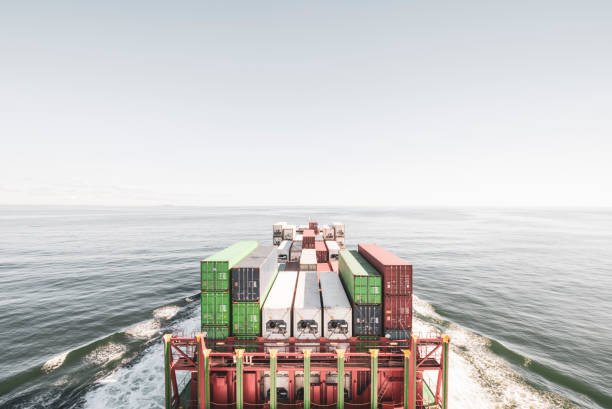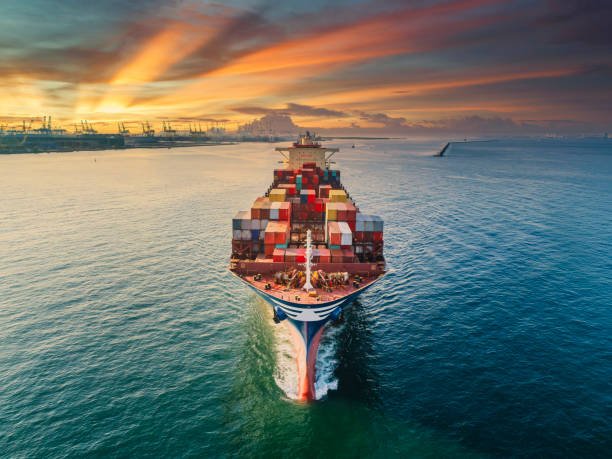In today’s interconnected world, Global Freight Forwarding plays a pivotal role in facilitating international trade. Whether you’re a small business owner or a multinational corporation, understanding the intricacies of freight forwarding can help streamline your supply chain operations and enhance your competitiveness in the global marketplace. In this comprehensive guide, we’ll delve into the fundamentals of Global Freight Forwarding, exploring its definition, key players, processes, challenges, and future trends.
What is Global Freight Forwarding?
Global Freight Forwarding refers to the coordination and management of the movement of goods from one location to another across international borders. It involves a range of activities, including transportation, customs clearance, documentation, warehousing, and risk management. Freight forwarders act as intermediaries between shippers (exporters or importers) and transportation providers, leveraging their expertise to ensure smooth and efficient cargo delivery.
Key Players in the Global Freight Forwarding Industry
The Global Freight Forwarding industry comprises a diverse array of players, including freight forwarders, shipping lines, airlines, trucking companies, customs brokers, and logistics service providers. Some of the leading global freight forwarders include DHL Global Forwarding, Kuehne + Nagel, DB Schenker, Expeditors, and C.H. Robinson. These companies offer a wide range of services tailored to meet the unique needs of their clients, ranging from air and ocean freight to inland transportation and warehousing.

Processes Involved in Global Freight Forwarding
1. Booking and Documentation
The Global Freight Forwarding process typically begins with the shipper contacting a freight forwarder to book transportation services. The forwarder then prepares the necessary documentation, including bills of lading, commercial invoices, packing lists, and export/import licenses, to facilitate the movement of goods across borders.
2. Transportation
Once the documentation is in order, the freight forwarder arranges for the transportation of goods via air, sea, rail, or road, depending on the nature of the cargo and the desired delivery timeline. They negotiate rates with carriers, optimize routes, and track shipments in real-time to ensure timely delivery to the consignee.
3. Customs Clearance
Customs clearance is a critical aspect of Global Freight Forwarding, involving the submission of customs declarations and the payment of duties and taxes on behalf of the importer/exporter. Freight forwarders work closely with customs authorities to ensure compliance with regulations and expedite the clearance process, minimizing the risk of delays or penalties.
4. Warehousing and Distribution
In some cases, freight forwarders may provide warehousing and distribution services to store and manage inventory before final delivery to the end customer. This includes inventory management, order fulfillment, and value-added services such as labeling, packaging, and kitting.
Challenges in Global Freight Forwarding
Despite its importance, Global Freight Forwarding is not without its challenges. Some of the key challenges facing the industry include:
- Regulatory Compliance:
- Keeping pace with evolving customs regulations and trade policies can be daunting, especially in light of geopolitical tensions and shifting global dynamics.
- Infrastructure Constraints:
- Inadequate infrastructure, congestion at ports, and capacity constraints in transportation networks can lead to delays and disruptions in cargo movement.
- Supply Chain Complexity:
- As supply chains become increasingly complex and fragmented, coordinating multiple stakeholders and optimizing end-to-end processes pose significant challenges for freight forwarders.
- Technological Disruption:
- The rise of digital technologies such as blockchain, artificial intelligence, and IoT is transforming the Global Freight Forwarding landscape, requiring forwarders to adapt and invest in innovative solutions to stay competitive.
Future Trends in Global Freight Forwarding
Looking ahead, several trends are shaping the future of Global Freight Forwarding:
- Digitization:
- The industry is embracing digital platforms and automation to enhance visibility, transparency, and efficiency across the supply chain.
- Sustainability:
- With growing awareness of environmental issues, there is a growing emphasis on sustainable practices, including alternative fuels, eco-friendly packaging, and carbon offset programs.
- E-commerce:
- The explosive growth of e-commerce is driving demand for faster, more flexible shipping options, prompting freight forwarders to tailor their services to meet the needs of online retailers and consumers.
- Collaboration:
- Collaboration and partnerships between industry players are becoming increasingly important as companies seek to leverage each other’s strengths and capabilities to deliver value-added services to customers.
Conclusion
In conclusion, Global Freight Forwarding plays a vital role in facilitating international trade and commerce, connecting businesses to markets around the world. By understanding the key processes, challenges, and trends shaping the industry, companies can optimize their supply chain operations and gain a competitive edge in today’s global marketplace. As the industry continues to evolve, embracing innovation, collaboration, and sustainability will be key to driving future success in Global Freight Forwarding.
